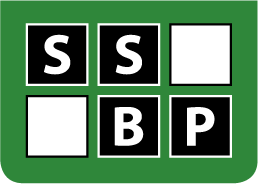Presentation 11 – Dr Agnies van Eeghen
SSBP Virtual Symposium 2023
Behavioural Outcomes of Treatment with Cannabidiol Oral Solution in Individuals with Seizures Associated with Tuberous Sclerosis Complex: Design of an Ongoing Phase 4 Trial (EpiCom)
Presenting Author : Dr Agnies van Eeghen
Abstract
Behavioural Outcomes of Treatment with Cannabidiol Oral Solution in Individuals with Seizures Associated with Tuberous Sclerosis Complex: Design of an Ongoing Phase 4 Trial (EpiCom)
van Eeghen A.M.1,2, Thiele E.A.3, Amin S.4, Samanta D.5, Stevens J.6, Moore-Ramdin L.7, de Vries P.J.8
1 Emma Children’s Hospital, Amsterdam University Medical Center, Amsterdam, The Netherlands
2 Advisium, ‘s Heeren Loo, Amersfoort, The Netherlands
3 Massachusetts General Hospital, Boston, Massachusetts, USA
4 Paediatric Neurology, University Hospitals Bristol and Weston, Bristol, UK
5 Child Neurology Section, Department of Pediatrics, University of Arkansas for Medical Sciences, Little Rock, AR, USA
6 Jazz Pharmaceuticals, Inc, Philadelphia, PA, USA
7 Jazz Pharmaceuticals, Inc, Cambridge, UK
8 Division of Child & Adolescent Psychiatry, Centre for Autism Research in Africa, University of Cape Town, Cape Town, South Africa
Background: There are limited treatments for tuberous sclerosis complex (TSC)–associated neuropsychiatric disorders (TAND), which affect ~90% of individuals with TSC. Cannabidiol (CBD; Epidiolex/Epidyolex) treatment reduced TSC-associated seizure frequency and improved patients’ overall clinical condition in trials. Anecdotal reports in individuals with TSC, and studies in other rare neurogenetic disorders suggest a positive effect on behavioural manifestations such as irritability. EpiCom is a multicentre, open-label, phase 4 study designed in collaboration with patient advisory groups and healthcare professionals to evaluate behavioural outcomes associated with add-on CBD treatment in individuals with TSC-associated seizures.
Methods: Participants (aged 1–65 years) starting CBD treatment for seizures and with moderate/severe behavioural challenges on Caregiver Global Impression of Severity scale are eligible. After screening, participants will receive CBD (up to 25 mg/kg/d based on individual response and tolerability) for 26 weeks. Following this 26-week treatment period, participants will have the option to continue CBD with standard of care for up to 52 weeks. Key behavioural efficacy endpoints include a change from baseline on the Aberrant Behaviour Checklist (including irritability subscale) and the most problematic behaviour on the TAND-Self-Report, Quantified Checklist (TAND-SQ). Changes in executive function, sleep, quality of life, family functioning, seizure outcomes (symptom severity, retention rate, responder rates, seizure-free days) and safety will also be evaluated.
Results: The trial will enrol ~75 participants at ~20 sites across the US, the UK, The Netherlands, Canada, Israel, and Poland.
Conclusions: The EpiCom study will describe changes in neuropsychiatric outcomes in individuals with TSC who experience seizures and are using CBD. This may inform future studies evaluating potential pharmacotherapy for behavioural outcomes in TSC and similar populations.
Keywords: Tuberous sclerosis complex, treatment-resistant seizures, neuropsychiatric disorders, aberrant behaviour, executive functioning, cannabidiol
Discussion Section
Use the comment box below to post questions for the author, and to discuss this presentation.
Note:
All comments are public, and comments may be moderated.
2024 SSBP Conference
Membership
Information
Contact
The Society for the Study of Behavioural Phenotypes (SSBP)
The Society for the Study of Behavioural Phenotypes (SSBP) is an international, interdisciplinary research society for studying the development, learning and behaviours of individuals with genetic disorders and ways of helping to improve lives. The society is registered as a charity in the UK (No. 1013849) and was set up in 1987.
Copyright 2024 © | The Society for the Study of Behavioural Phenotypes (SSBP)
